 About me
About me Creative
Creative Humor
Humor Writings
Writings Links
Links Contact me
Contact me
|
|||||


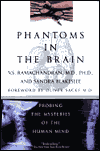 Phantoms in the brain V. S. Ramachandran gives examples of bizarre neurological disorders - people who are paralyzed but believe they can move freely, people who believe that their parents are robots, people with one happy and one suicidal brain hemisphere, etc - and shows what these disorders can teach us about the functioning of our brains. A book similar to, but probably better than, Oliver Sacks's The Man Who Mistook His Wife For A Hat. 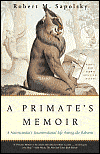 A Primate's Memoir: A Neuroscientist's Unconventional Life Among the Baboons Robert M. Sapolsky has written a very funny book about his travels in Africa. And about baboons. You're probably not interested in baboons. Read it anyway! 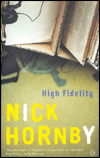 High Fidelity Nick Hornby's novel about relationships, records, and top five lists. 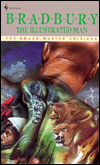 Various SF short stories I like some science fiction short stories by Philip K Dick and Ray Bradbury, largely because the genre makes it possible to create huge psychological perspective shifts [1]. (For most people, "science fiction" means stupid action movies with lasers and explosions, because more people watch movies than read books, and for some reason, Hollywood adaptations of SF stories always exclude the intelligent parts and add huge plot holes and silly action sequences that were not present in the original story [2]. But from a moviegoer's perspective, what I mean by "huge psychological perspective shifts" is something like the twist endings in The Sixth Sense or the original Planet of the Apes, or even the scene where Neo "wakes up" in The Matrix). Anyway - Ray Bradbury writes magical, poetic, sometimes creepy stories, some of which take place on a naive version of Mars. I like these ones: The Earth Men, The Third Expedition, - and the Moon be Still as Bright, The Long Rain, Kaleidoscope, No Particular Night or Morning and Dark They Were, and Golden-eyed. Most of them can be found in the collections The Illustrated Man and The Martian Chronicles. Philip K Dick's stories often revolve around the questions What is real? and What is a human?, generally with a high level of paranoia. I recommend these stories: The Crawlers, The Commuter, Breakfast at Twilight, Shell Game, We Can Remember It For You Wholesale, Minority Report, Autofac, Meddler, Paycheck, Colony and The Hanging Stranger. Many of these are included in The Philip K. Dick Reader. Incidentally, does anyone know why SF book covers invariably feature ugly airbrushed spaceships that have nothing to do with the plot? And also, seeing as the stories I've mentioned are over fifty years old, can anyone recommend any more recent authors who write short stories in a similar style? |
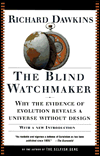 The Blind Watchmaker Richard Dawkins explains why we exist. The theory of evolution is incredibly beautiful in its ability to give a simple explanation for the complexity of the biological world, yet few people understand it well. In his books, Dawkins shows how evolution can produce altruism, and various other complex organs and behaviors, but most of all, he explains its basic principles and shows why evolution is the only possible explanation - even in theory - for complex living organisms. 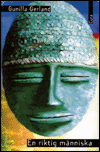 En riktig människa (English title: "A Real Person: Life on the Outside") Gunilla Gerland's autobiography, in which she describes what it was like to grow up with undiagnosed Asperger's disorder (a mild form of autism), surrounded by people who thought she was just being difficult and obstinate. Some examples: For Gunilla, school was full of strange rules that she didn't understand but had to learn to accept. When some schoolyard bullies told her that "We're going to beat you up every day", she accepted it as another rule, and actually went and reminded them if they forgot to beat her up. Her parents would berate her or laugh at her for being so lazy as to not bother to look behind things when she was searching for something. All the while, Gunilla simply didn't know that things could be behind other things! It's an utterly fascinating book. 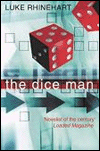 The Dice Man Luke Rhinehart lets the dice decide his future. A fun, cynical and thought-provoking read. 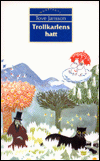 Trollkarlens hatt (English title: "Finn Family Moomintroll", but the English translation seems bad, so this review is in Swedish.) Det händer makalöst mycket i den här fantastiskt somriga muminboken av Tove Jansson. Och Tofslan och Vifslan är hur tuffa som helst. |
|
|||